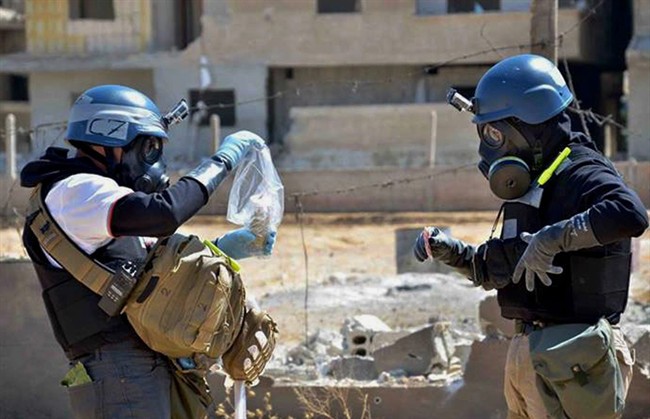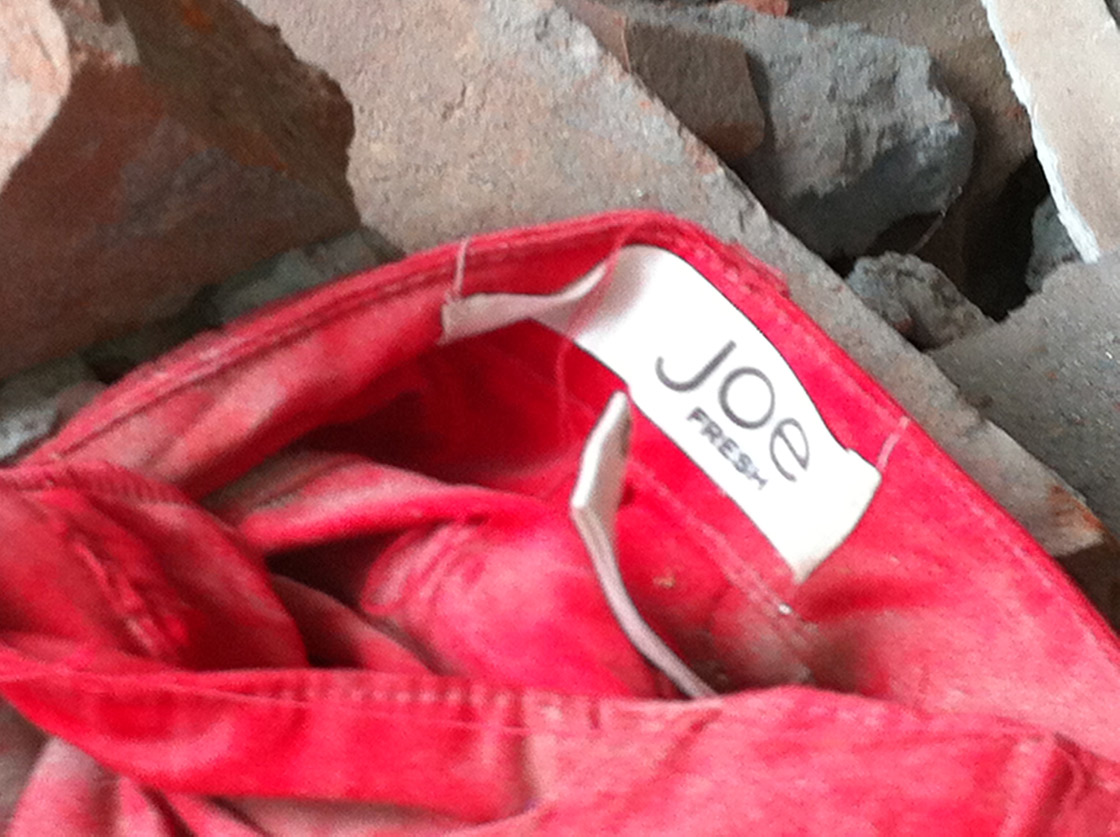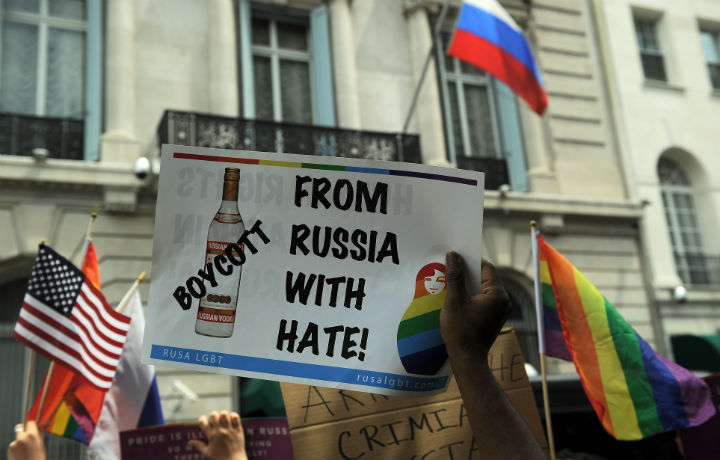There are many stories from the past year that could make the “biggest stories of the year” list, but few stories shape the discussion around a country, a policy or an institution.

These are the “game-changers;” from a secret spy program that left everyday citizens questioning their privacy to a global debate about gay rights that will continue in to 2014, Global News has selected five game-changing stories of 2013.
POLL: Vote for the biggest story of 2013
Rana Plaza collapse
The April 24 collapse of the Rana Plaza garment factory in Dhaka, Bangladesh was the worst disaster the country’s garment industry had ever seen. There has long been criticism of the conditions in which garment workers in developing countries manufacture clothing for Western companies. But with more than 1,100 dead, it was no longer possible to turn a blind eye to the situation.
One of the companies whose clothing was stitched together at Rana Plaza — an eight-story building housing several garment factories — was Canada’s Joe Fresh, owned by grocery giant Loblaw. The company promised to compensate the victims’ families and survivors. Loblaw’s and other companies also committed to a plan that would make them more involved in monitoring the safety and working conditions at the factories they contract to make their products.
Boston Marathon bombing
When Tamerlan and Dzhokhar Tsarnaev set off homemade bombs near the finish line of the Boston Marathon in spring, the deadly attack left the city shaken but determined to not be held captive by fear.
It didn’t take long for authorities to pinpoint who was responsible for the bombing. But it was how Boston, and the towns of Cambridge and Watertown, responded in the days following that had many people talking.
The city came to a virtual standstill after Massachusetts Gov. Deval Patrick asked citizens to “shelter in place” on Apr. 19 — four days after the bombing — as police carried out a massive manhunt for the younger Tsarnaev brother, Dzokhar. Older brother Tamerlan was killed in the early hours of that morning in a shootout with police.
The people listened. There was no threat of being fine, as with a state of emergency (there was a no-fly zone over Watertown put in place and no vehicles were let in or out of the Boston suburb), but an overwhelming number of residents stayed indoors as the manhunt went on.
In a country where civil liberties are revered, some compared the situation to martial law. But, many others saw it as letting the police hunt down the suspect. When the Dzokhar Tsarnaev was found, apprehended and the town was given the all clear, the streets went from silent to celebratory.

Get breaking National news
Pope Benedict resigns
- Teen who desperately needed size 23 shoes now holds 2 world records
- Yellowstone Park tourist burns leg after going off trail near Old Faithful
- Mohamed Al-Fayed, whose son died with Princess Diana, accused of multiple rapes
- Hezbollah chief says Israel crossed ‘red lines’ with exploding device attacks
Time magazine recently named Pope Francis as its “Person of the Year.” It was a recognition of the pontiff’s efforts to reach out to non-Catholics and his apparent softer tone on issues of abortion, divorce and homosexuality.
It was the resignation of Pope Benedict XVI in February that set all of this in motion. Born Joseph Ratzinger, the 86-year-old was the first pope to step down in almost 600 years. He resigned due to his “advanced age,” but later said it was God who inspired him to leave the post. Usually a pope serves until he passes away.
Benedict, by breaking the pattern, may have inadvertently put the papacy on a more progressive path.
Edward Snowden leaks NSA files
No one knew who 29-year-old intelligence contractor Edward Snowden was for the first half of the year, but he has since become a household name.
In June, Snowden became the face of the National Security Agency (NSA) surveillance scandal, revealing details of how the U.S. and its partners monitored world leaders, trading partners and video-game players.
Snowden has reportedly only released a fraction of the documents he obtained while working at an intelligence consulting firm. But what he has already revealed has put a strain on international relations between some countries and spurred distrust of citizens in government.
Six months later, a U.S. District Court judge ruled the telephony metadata program was likely unconstitutional and ordered a temporary injunction against the gathering of phone records.
Chemical weapons attack on Eastern Ghouta
On August 21, the Syrian regime launched a chemical weapons attack on the Damascus suburb of Eastern Ghouta. For weeks, the government of President Bashar al-Assad denied the attack and the existence of chemical weapons. It was later reported the attack killed 1,429 people, including more than 400 children.

But as the evidence mounted against the regime, Syria risked international intervention in its ongoing civil war.
Enter Russia, which brokered a deal that led to the U.S. backing off a possible intervention and Syria admitting it had a stockpile of chemical weapons.
The Syrian government agreed to allow the Organization for the Prohibition of Chemical Weapons into the country to document its arsenal and begin disassembling it.
Despite its involvement in the deal, Russia’s ambassador to the UN said in December the attack was “staged” and a “manipulation of public opinion.”
Russia’s anti-gay propaganda law
There were some advances in the fight for lesbian, gay, bisexual and transgender rights this year — the U.S. Supreme Court overturning the Defense of Marriage Act, to name one — but in June, the issue of gay rights came to the forefront with the Russian government passing a law that would made it illegal to promote “non-traditional” lifestyles.
The law raised the ire of the international community and prompted calls for boycotts of Russian products.
Russia is slated to host the Winter Olympics in Sochi this coming February. The Olympics are meant to foster relationships and inclusiveness, but LGBT activists and their supporters called on the International Olympic Committee (IOC) to address the issue.
The IOC reiterated its stance that the Games were open to everyone, but also reminded participants that the podium was not a place for politics.
In a show of support for the LGBT community, French President Francois Hollande has vowed not to attend the event and 2010 Winter Olympics host Vancouver announced openly-gay city councillor Tim Stevenson would go to Sochi and urge the IOC to add an non-discrimination clause to its charter that includes lesbian, gay, bisexual and transgender individuals.












Comments